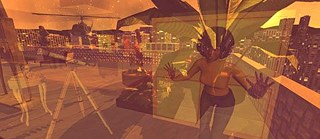Workshop
Games and Politics: Teaching history and politics via videogames

A workshop conducted by Dr. Souvik Mukherjee
Videogames are without any doubt very popular across generations and social strata. As games scholars James Gee and Mary Flanagan argue, videogames are not merely tools that can be used for teaching but that they intrinsically teach us to think critically about our society, politics and history. The choices that are made in many of these games prompt us to engage in ‘critical play’, as Flanagan terms it.
This hands on workshop for teachers and professors of history, politics, sociology, aims to bring the principles and the practices of critical play to all educators who are interested in exploring new technologies as media that can significantly influence learning and teaching in the current digitally informed and networked societies as well as in the days to come.
After a brief introduction with background information on the medium, you will experience and play some of the most apt video games yourselves before creating a model lesson plan that can be implemented in the classroom in order to provide a new, fascinating and more direct understanding of historical and socio-political developments for your students.
Many of these games enable the player to have first-hand experiences in different political situations and social developments. They make political decisions (e.g. game “Democracy III”) or witness social injustices; the games address precarious labour conditions (e.g. game “Sunset”), gender issues (e.g. game “Perfect Woman”) and the treatment of refugees (e.g. game “Escape from Woomera”). The games lead the players into political struggles such as the revolution against a totalitarian system (e.g. game “Yellow Umbrella”) and confront them with the surveillance state (e.g. game “Touchtone”) and the consequences of armed conflicts (e.g. game “This War of Mine”). Adopting the characters of often-marginalized people, players experience limited possibilities and negative sanctions through both the character and the game play.
The workshop is presented in collaboration with History for Peace —An initiative of The Seagull Foundation for the Arts and as part of the exhibition “Games and Politics”, curated by the Goethe- Institut.
Duration of the workshop: 4 Hours 30 minutes
Entry is by registration only.
Limited seats are available.
Eligibility:
Teachers at schools and professors in colleges and universities.
Deadline for application: 20 February 2019
Each application should be sent to prog@kolkata.goethe.org
Details about the conductor:
Dr Souvik Mukherjee’s book Videogames and Storytelling: Reading Games and Playing Books has been published by Palgrave Macmillan in 2015 and his other monograph, Videogames and Postcolonialism: Empire Plays Back was published in 2017. He has a PhD on videogames and storytelling from Nottingham Trent University, United Kingdom and has published and presented on the topic in national and international forums.
He is a regular gamer and writer. In his non-gaming life, he is an assistant professor in the Department of English at Presidency University, Kolkata.
Details
Goethe-Institut / Max Mueller Bhavan Kolkata
Park Mansions, Gate 4
57A, Park Street
Kolkata
700 016
@@country@@